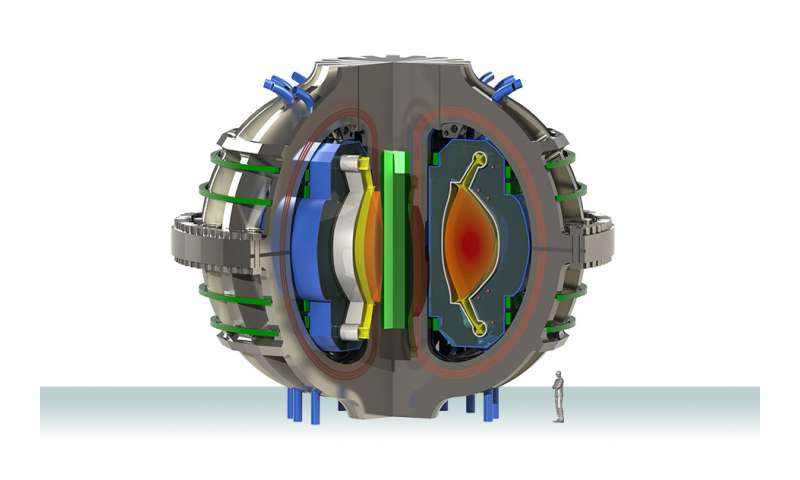Best of Last Week – New idea for fusion power plants, world's fastest camera and a link between diet and depression

It was another good week for physics as a team at the University of Exeter found that new half-light half-matter particles may hold the key to a computing revolution—they suggest the discovery may open the door to the development of photonic circuitry. Also, a team made up of graduate students at MIT, faculty and workers at Mitsubishi Electric Research Laboratories and Commonwealth Fusion Systems claimed to have developed a novel design to shed excess heat in next-generation fusion power plants. And a team with members from Duke University, Oak Ridge National Laboratory and Argonne National Laboratory announced a way to get copper ions to flow like liquid through crystalline structures, possibly leading to the development of superionic crystals.
In space news, a team with members from Cardiff University, NASA and the University of Virginia found that giant, jagged 'ice spikes' cover Jupiter's moon Europa—likely making things extremely difficult for any future landing craft. And NASA announced that another space telescope shut down in orbit—this time it was the Chandra X-ray Observatory.
In other news, a pair of researchers at the IT University of Copenhagen described scenarios in which technological "allusive machines" could shape beliefs and theories about life. And a team with members from Institut National de la Recherche Scientifique and California Institute of Technology announced that they had developed the world's fastest camera—one that freezes time at 10 trillion frames per second. A team at the Sanders-Brown Center on Aging at the University of Kentucky found evidence that suggested the ketogenic diet appears to prevent cognitive decline in mice. And a team at the University of Lorraine announced that they had come up with a new developmental reinforcement learning approach for sensorimotor space enlargement.
And finally, if you are one of the millions of people around the world who experience episodes of depression, you might want to take another look at what you eat. A team of researchers at James Cook University studying the diet of people living on Torres Strait islands found a link between what people ate and depression.
© 2018 Science X